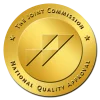Behavioral Health Services Overview
Peak Behavioral Health is here for anyone struggling with psychiatric concerns or a mental health crisis in New Mexico, Texas or the surrounding communities.
The team at Peak Behavioral Health Services offers several levels of care to meet the needs of our community for adolescents, adults, and seniors. These mental health programs are structured and designed to support those who are struggling with a mental health challenge in their lives. Discharge planning with family or caregiver involvement begins upon admission.

Inpatient & Outpatient Programs
Peak Behavioral Health is proud to offer acute inpatient and outpatient treatment programs for individuals experiencing severe psychiatric symptoms or a mental health crisis. We have specialized staff and resources to provide assessment, diagnosis, and stabilization of acute psychiatric issues, such as depression, anxiety, bipolar disorder, schizophrenia, and other mental health disorders.
Peak Behavioral Health provides a structured and therapeutic environment that helps patients manage symptoms and regain quality of life. Inpatient care offers 24-hour monitoring, including medical management, therapy, medication management, and counseling. Peak Behavioral offers various therapeutic services, such as group therapy, individual therapy, art therapy, and occupational therapy, among others.
Peak Behavioral also works in conjunction with outpatient services and community providers to develop aftercare plans for patients. This extra step helps with a smooth transition back into their homes, workplaces, and communities. Our goal is to stabilize the patient’s condition, manage symptoms, and provide the necessary skills and tools to manage long-term mental health.

Outpatient Care
Our outpatient day treatment, also known as Partial Hospitalization, is designed for individuals who require intensive support and structure but do not need 24-hour care. Patients attend five days per week for six hours a day. They can return home in the evening and attend treatment at our facility during the day.
Inpatient Care
Inpatient care, also known as Acute care, entails our Inpatient Psychiatric Program which is a short-term program that provides specific treatment for adolescents (12+), adults, and senior adult patients. These patients may suffer from psychiatric or behavioral issues and require an inpatient setting.


